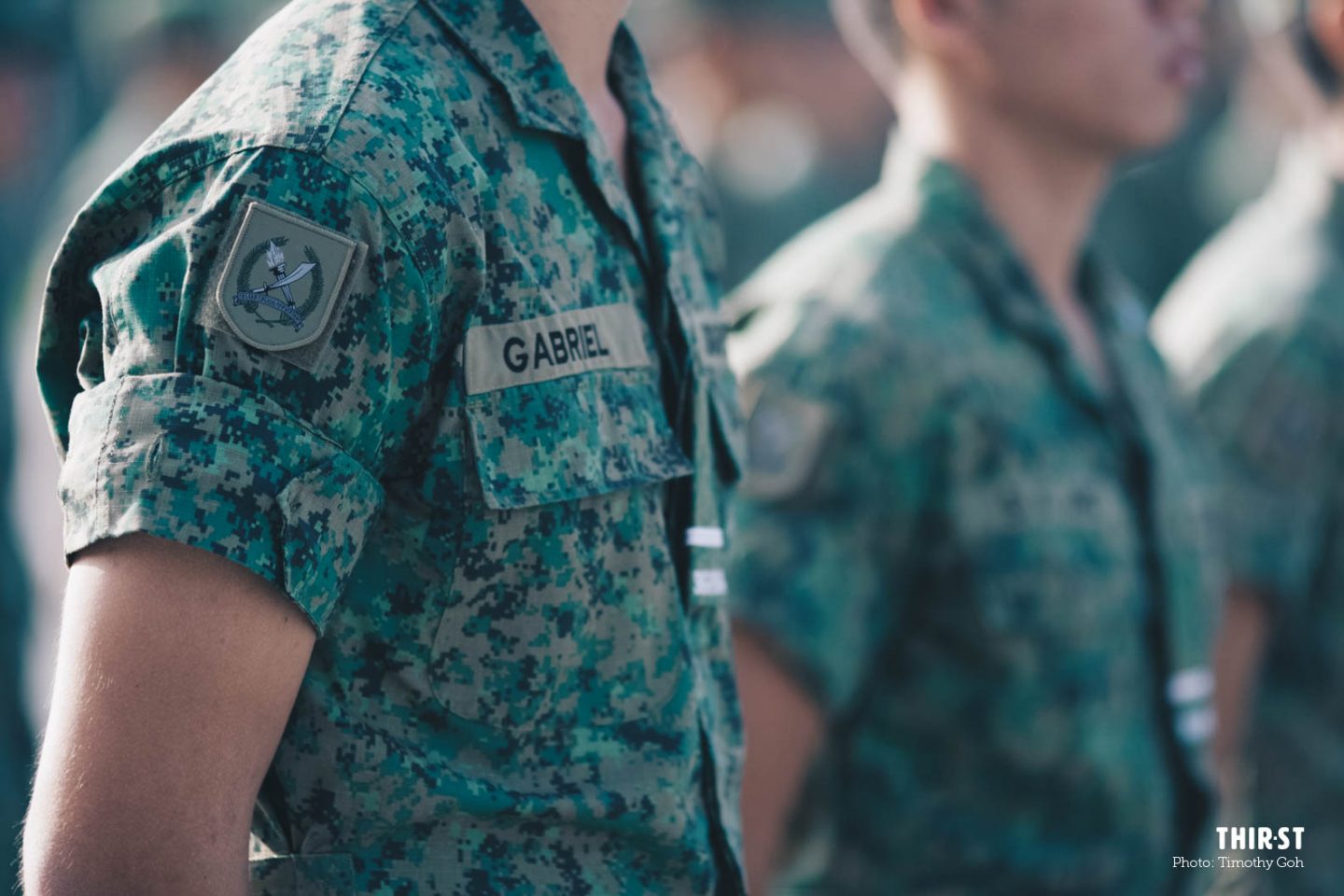I have the privilege of leading a young adult cell group in my church, and it has been a very fulfilling journey with them so far.
The cell is mostly made up of boys serving their National Service (NS) in diverse vocations. Each one’s NS journey is unique and as a female leader, it’s refreshing to hear different perspectives of NS from each of them.
Although they’re not new to the faith, they are very new to each other. My co-leader and I had to be intentional about building a community and thankfully, the NS experience is a topic that has bonded the boys easily.
It has been very encouraging to see those who have been in NS longer, guiding the recruits within the cell and giving them advice. My hope for them now is that this support goes beyond the needs of NS — that they will disciple each other as well.
Just before they enlist, I always pray over them to enter the army as a boy — but leave as a man and warrior.
Having a cell that is primarily comprised of NS boys does come with its difficulties.
As it’s a challenge for them to attend cell and service, I’m always comforted when I see them try because I know they are making sacrifices to be there. It’s natural that they are physically and mentally exhausted from the week in camp and want their precious weekends. Furthermore, life’s other priorities like family and friends also come into play.
But I’m not merely concerned with their attendance in cell and service attendance. My greater concern is whether they are walking with God as they serve the nation. And as mentioned, the exhaustion and fatigue they experience are unrivalled, so they may be more vulnerable to the temptations they face in the NS context.
So that’s been my journey of late. If you’re a female cell leader of NS boys like me, or would simply like to better support your friends in NS — I can offer two practical tips.
TWO STEPS TO WALK WELL WITH SOLDIERS
1. Learn about NS sincerely
BMT, JCC, Cat 1, OCS, SCS, PES and PTE … The list of acronyms was almost unending. These are just some of the acronyms we would hear regularly, and it was really confusing for us girls in the cell.
And yes, it can get tedious after a few weekends of hearing them share the same things or rant about their platoon and superior officers. But honestly, the same goes for many of our own stories and testimonies! As much as their experiences may seem distant, they bear a lot of similarities to the journeys in our own lives — just in a different context.
I’m sure our cell’s sharing could just as easily have been dominated by the “struggling with studies” narrative. A working adult may repeatedly share about a difficult boss at work. The point is, cellmates still listen, encourage and pray for each other earnestly — that’s how community is fostered.
Don’t let an unfamiliar situation deter you from getting to know your cell members better!
… listen, encourage and pray for each other earnestly — that’s how community is fostered.
Beyond listening to them share, there are other methods of understanding their experiences. I found Youtube videos on the NS experience by the Ministry of Defence particularly helpful. They helped me to have a better understanding of what Basic Military Training (BMT), Officer Cadet School (OCS) and the Naval Diving Unit (NDU) looked like.
Granted, they don’t show everything that will happen in the army. Seeing how they get tekan-ed by their superiors in an environment where there is no room for mercy and grace helps me understand some of the frustrations they carry into the weekend. And it pushes all of us at cell to extend mercy and grace towards them as well.
.embed-container { position: relative; padding-bottom: 56.25%; height: 0; overflow: hidden; max-width: 100%; } .embed-container iframe, .embed-container object, .embed-container embed { position: absolute; top: 0; left: 0; width: 100%; height: 100%; }
2. Cover them!
Prayer is the key.
Just before they enlist, I always pray over them to enter the army as a boy — but leave as a man and warrior. It’s a prayer of expectancy for them and for myself, the hope is that they would let the Lord challenge and grow them exponentially in the army.
It also pushes me not to take on a passive role of listener but also to point them back to Christ as they are challenged physically and mentally. So instead of simply listening and asking generic questions about their week, I find questions like, “Where do you see God in this situation?” or “How is God challenging you then?” a lot more productive.
Responding sensitively and clearly does mean you must take the time and effort to intercede and pray for them during the week. Making time to meet them outside of church whenever they can, to minister to them, also helps keep them accountable as well.
I also encourage them to find mentors in church. I know there are limits to the insight a female leader can provide for them. NS challenges them physically and mentally but it also brings aspects of freedom they might not have had as teenagers. Until they acknowledge that true freedom is found in Christ and live with the peace and wisdom the Lord pours into their lives, they may be easily swayed by the thrills that come with army life.
To enter the army as a soldier and leave as a warrior for Christ. Let’s back our boys up — those at the front-line need our support from the base!









